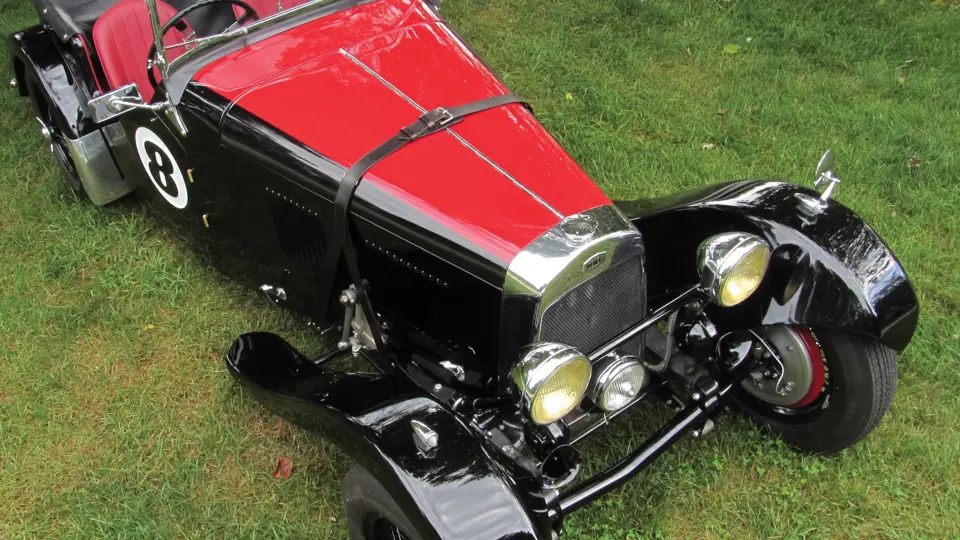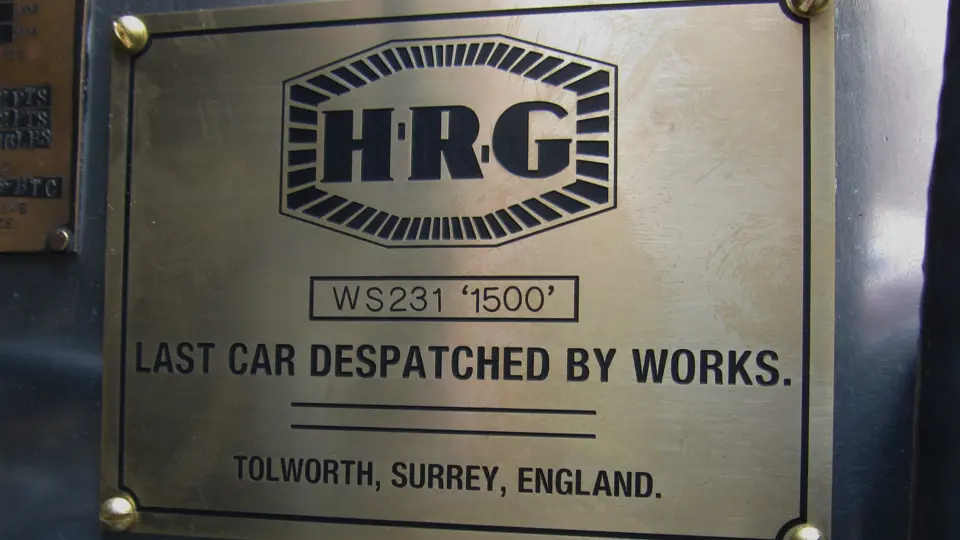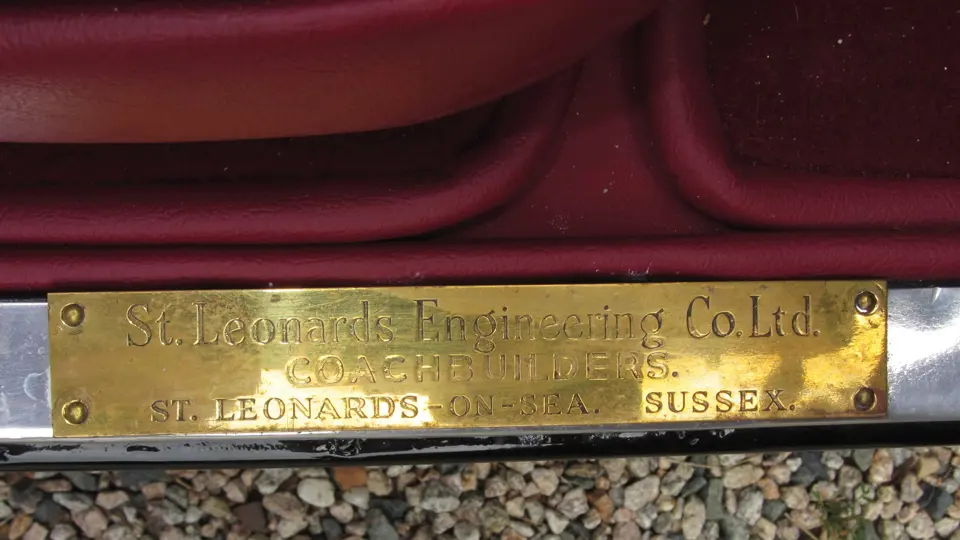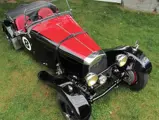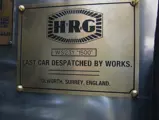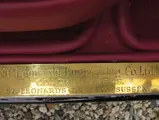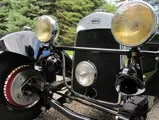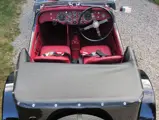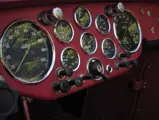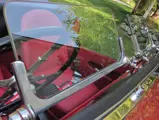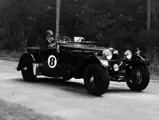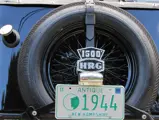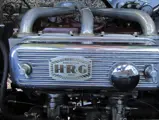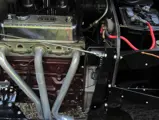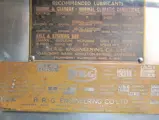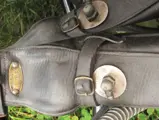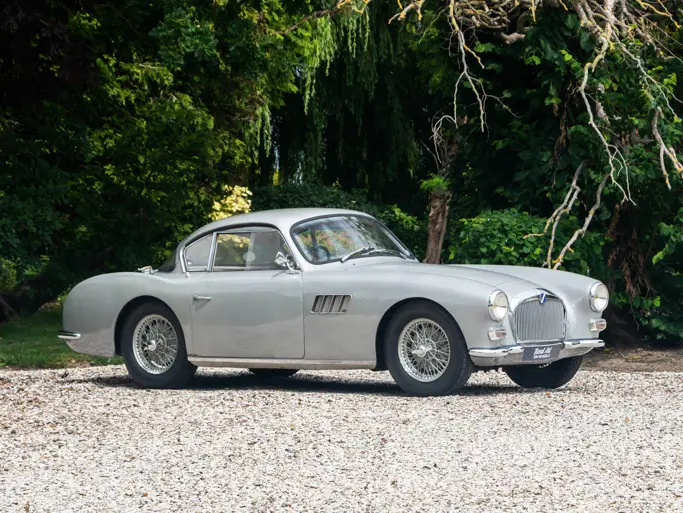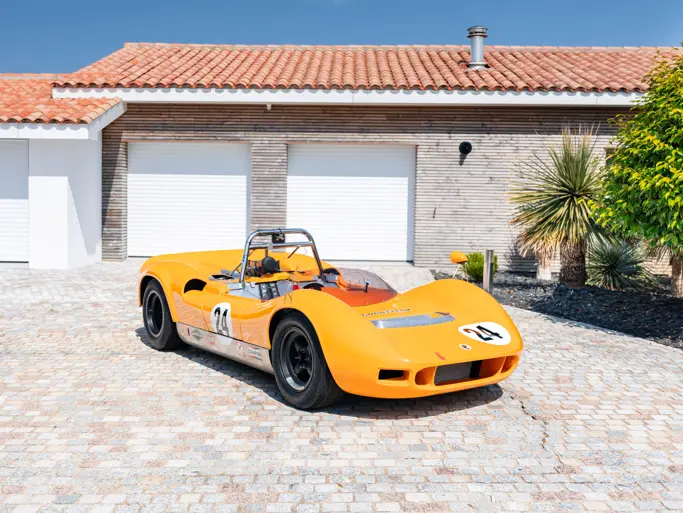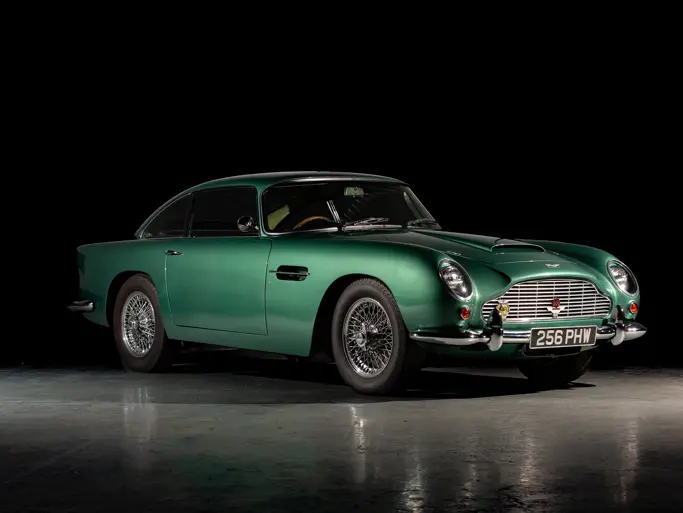94 bhp, 1,798 cc OHV inline four-cylinder engine, five-speed manual transmission, solid front axle with quarter-elliptic leaf springs, live rear axle with semi-elliptic leaf springs, and four-wheel hydraulic drum brakes. Wheelbase: 103 in.
The famous HRG marque achieved remarkable European racing successes at such important venues as Le Mans, Monte Carlo, and Coupe des Alpes, as well as in the U.S. at Bridgehampton, Palm Beach, Watkins Glen, and others.
The car offered here, chassis number WS231, was the last of the iconic HRG 1500s to be dispatched from the factory, shipped in July 1956. One of 12 ordered by “sole Northern Hemisphere importer” Jack Wherry, it languished at the works while the customer, a Mr. Olson, hemmed and hawed over right-hand versus left-hand drive. By the time that he finally settled on right-hand drive, two later cars had been completed and shipped!
Mr. Olson’s car was bodied by the St. Leonards Engineering Co., Ltd., a small coachbuilding firm located at St. Leonards-on-Sea in Sussex; a small brass threshold plate attests to this.
The prior owner of the car installed a 1,798–cubic centimeter BMC engine. In motorsports competition, more powerful and easily serviced powerplants are often fitted, as was the case here. The work was done, however, without any modifications to the body or chassis, and the original overhead-cam Singer engine is included in the sale.
The current owner completed a two-year specialist restoration, during which all chassis, suspension, electrical, braking, and transmission components were seen to, as were the classic 16-inch wire wheels. The large high-temperature magnesium hydraulic brake cylinders have all been restored. Correct Brooklands aero screens were installed, along with Simpson 36-inch competition safety belts. All brightwork was tastefully renewed, including the rare nickel-plated rear bumper. The cockpit is done in correct new burgundy leather and is fitted with Wilton wool carpeting. The Jaeger instruments and Scottish Dalvey rally timing equipment were cleaned and recalibrated, as were the canvas top, side curtains, and boot. The bonnet has its original split-yoke strap, crafted of Highland Scottish leather. In addition, the car carries an eight-piece spanner tool wrap, Thor wheel knock-off hammer, Castrol oiler, and a spare spark plugs set, all neatly niched under the bonnet.
Since completion last year, the car has been enjoyed in a sporting fashion, including informal hillclimbs and gymkhanas in New England and extended comfortable touring. It comes with a complete record of the restoration work, a collection of Gaxette magazines published by the H.R.G. Association, an owner’s manual, a workshop manual, and an autographed copy of Ian Dussek’s definitive book HRG: The Sportsman’s Ideal.
Just 241 HRG automobiles were built in the 22 years of production, certainly a rarity, even for craft-based manufacture. As the last “production car” to leave, this one has a special place in that history. The HRG Association carries a substantial stock of chassis and other parts, including spares for the original Singer engine, a comfort for the next owner.
Fully ready for competition, touring, or simple enjoyment, this HRG presents a chance to own one of the most iconic British sports cars.
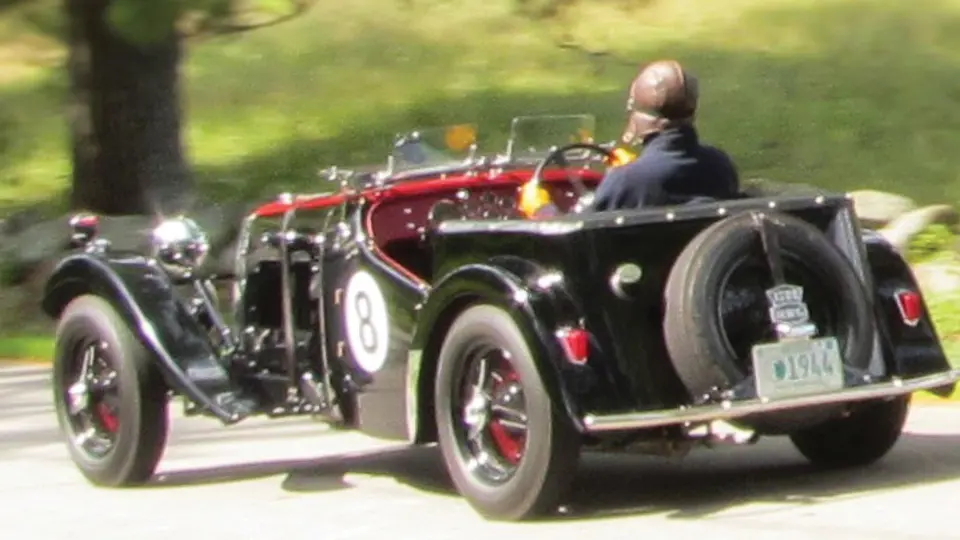
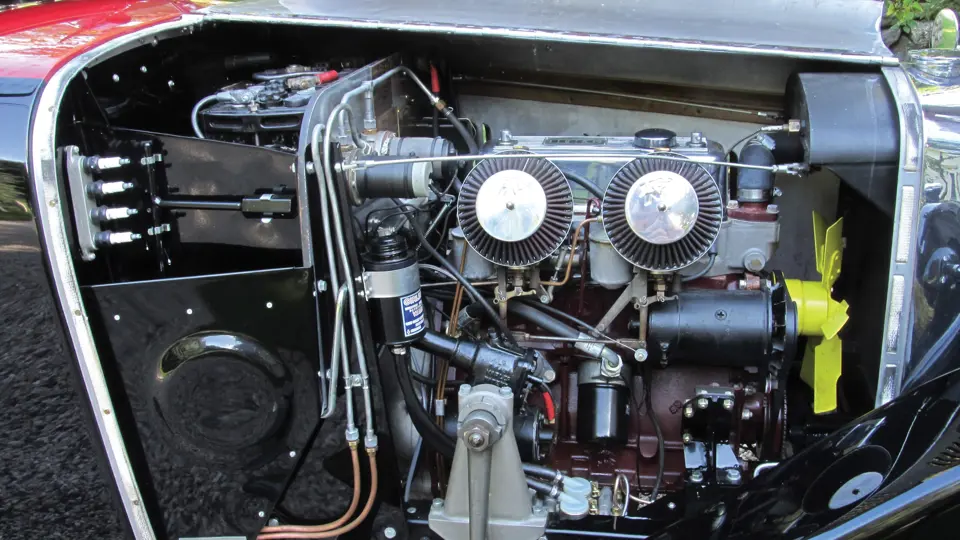


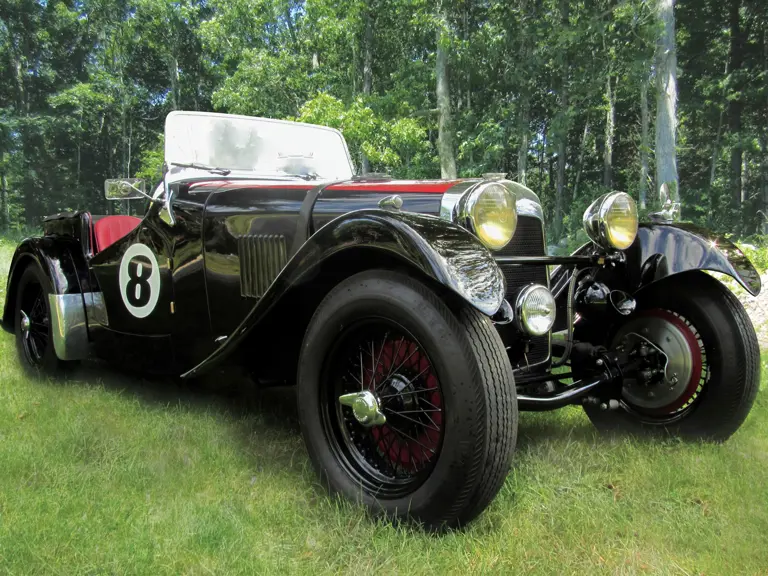
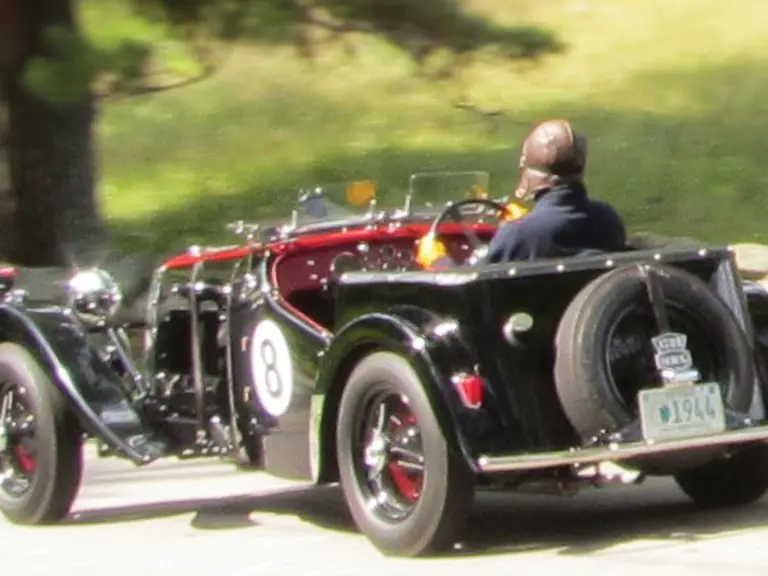
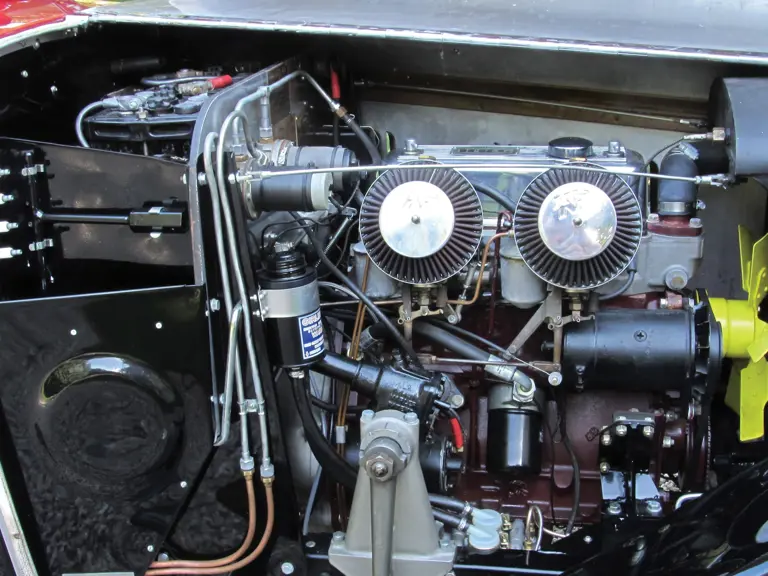
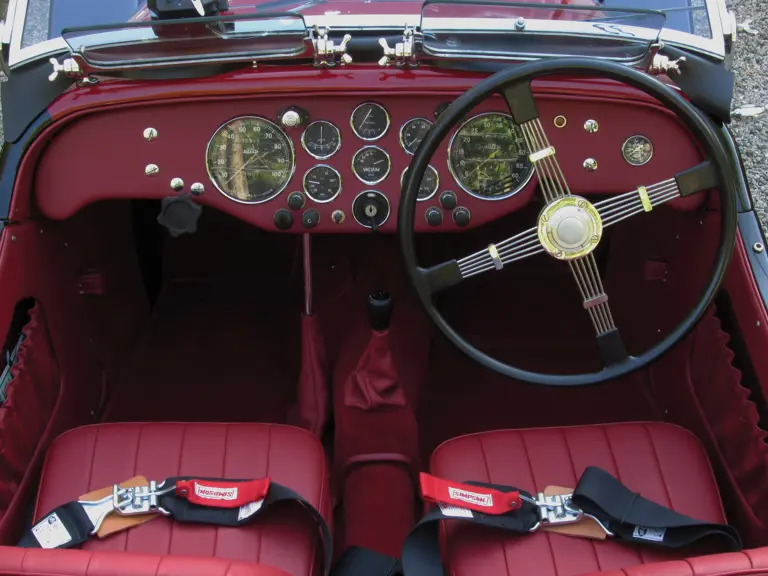
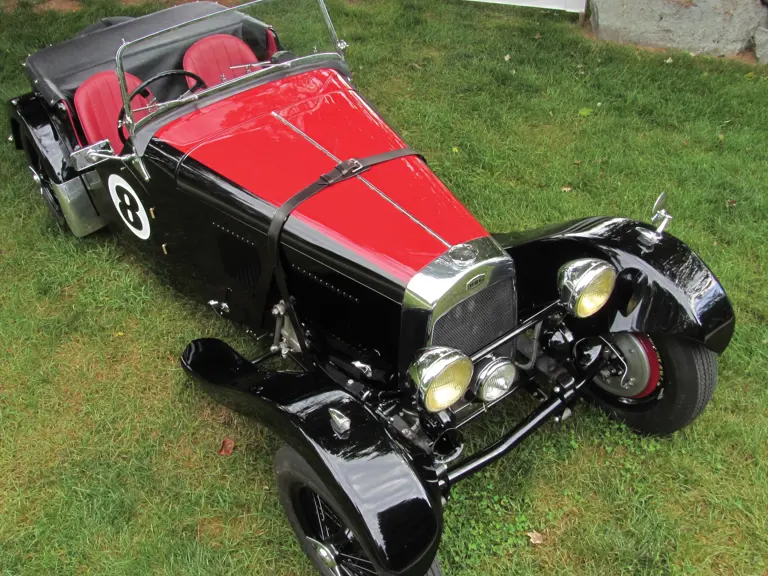
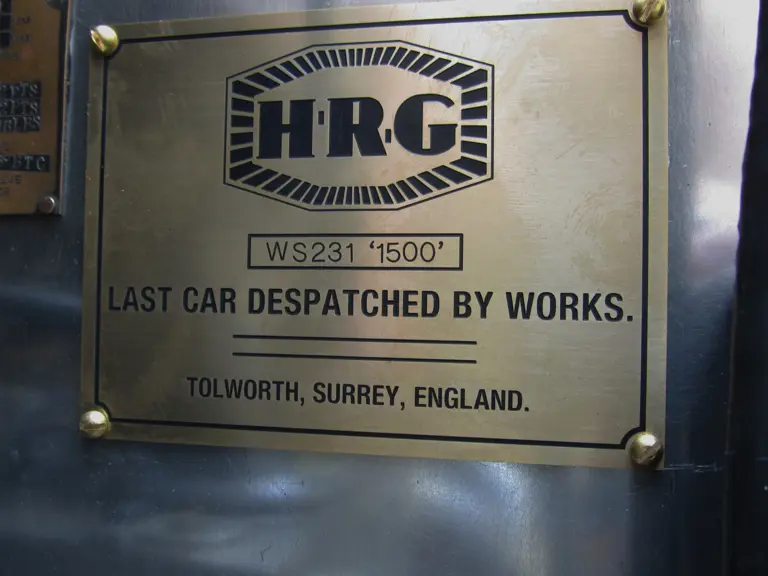
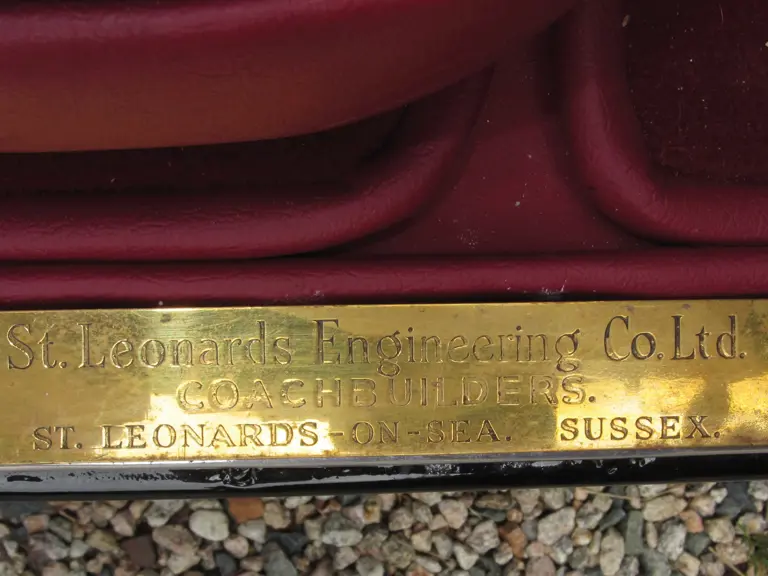
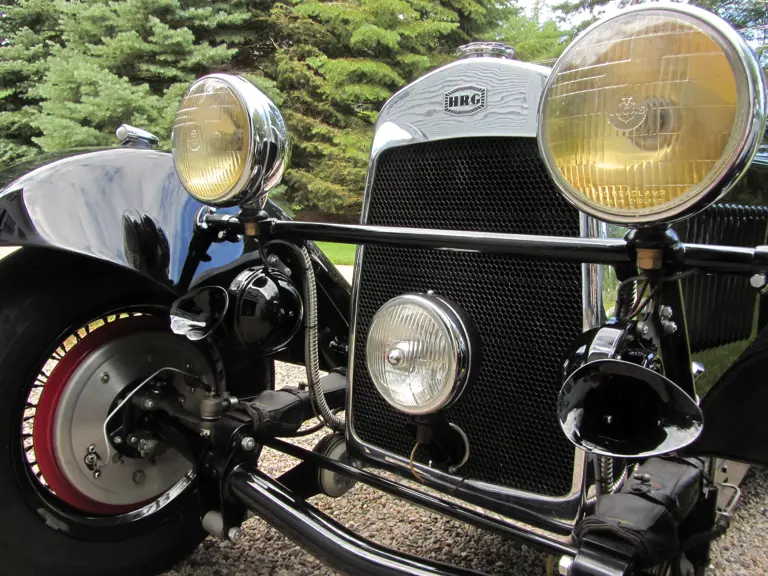
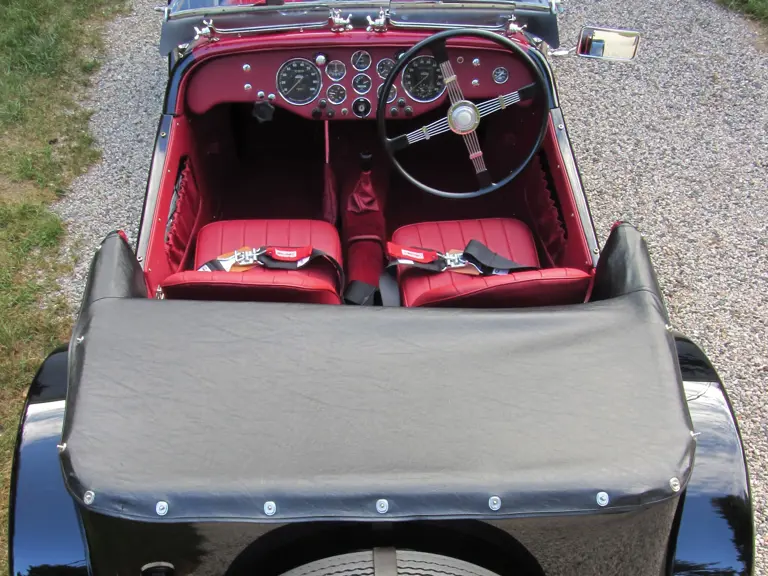
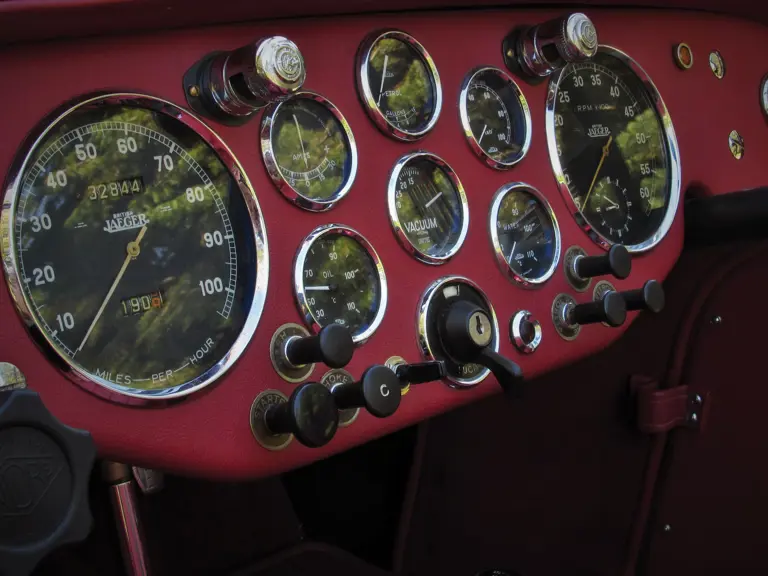
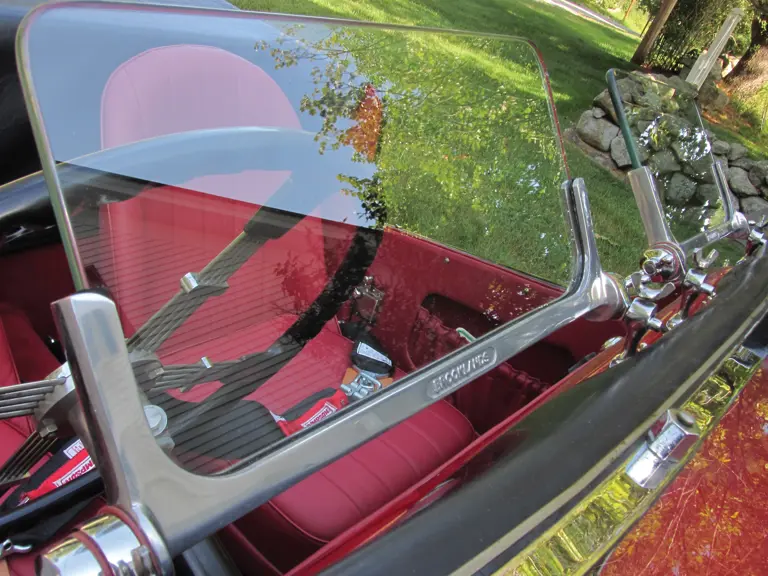
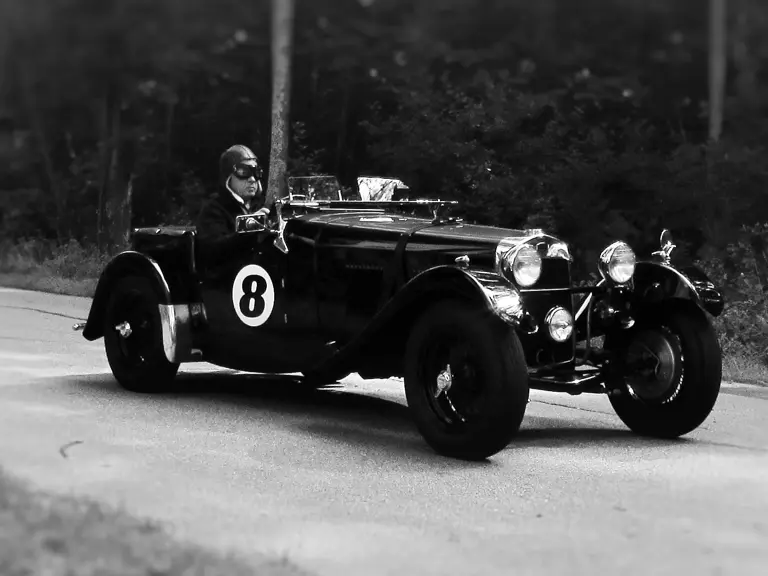
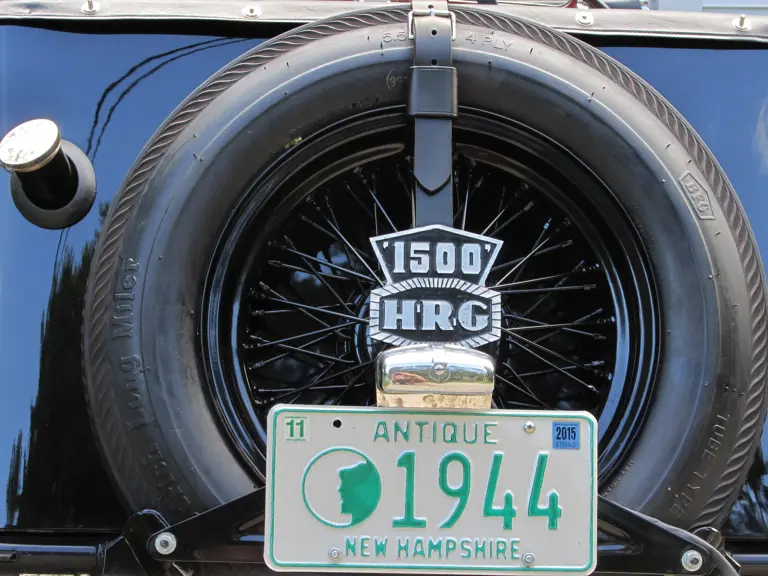
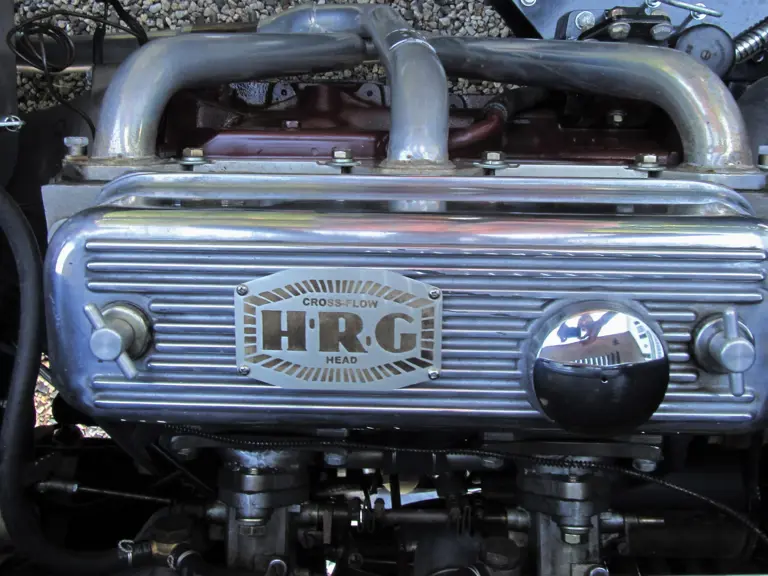
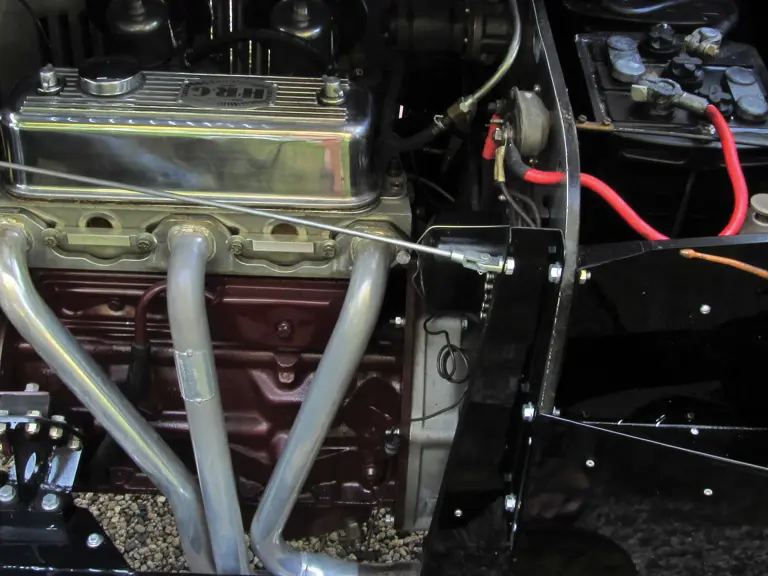
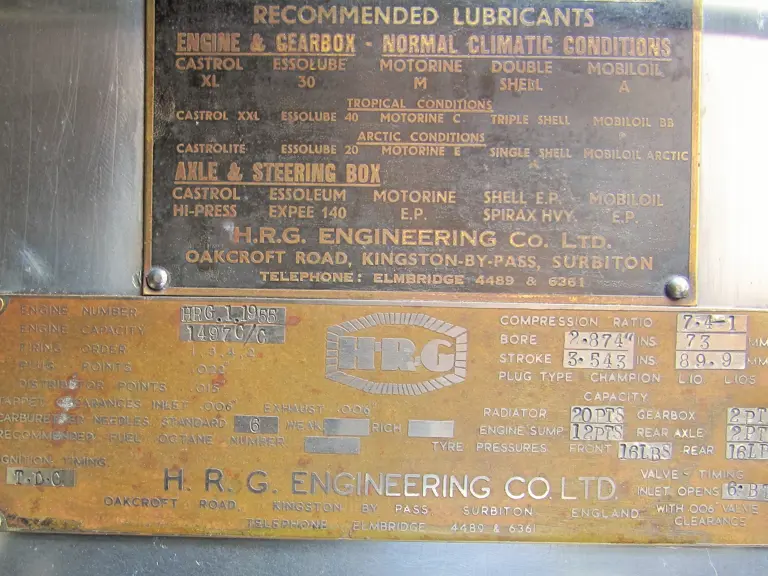
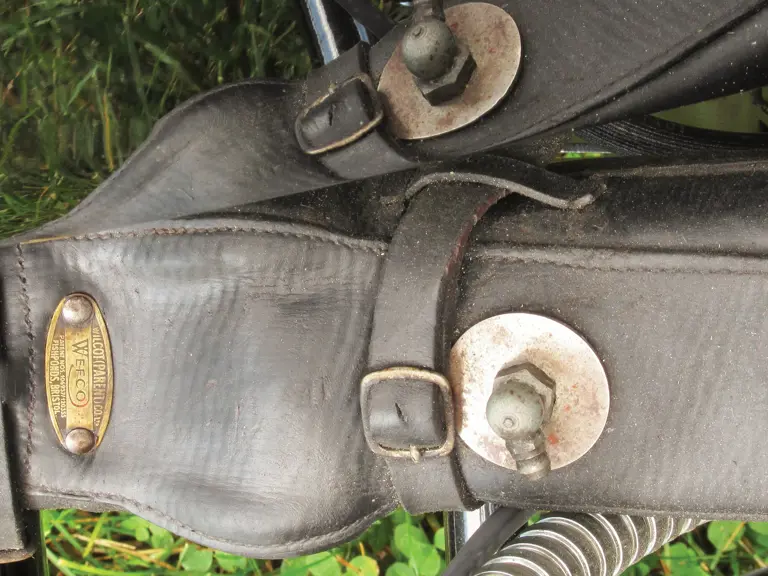

 | Amelia Island, Florida
| Amelia Island, Florida
